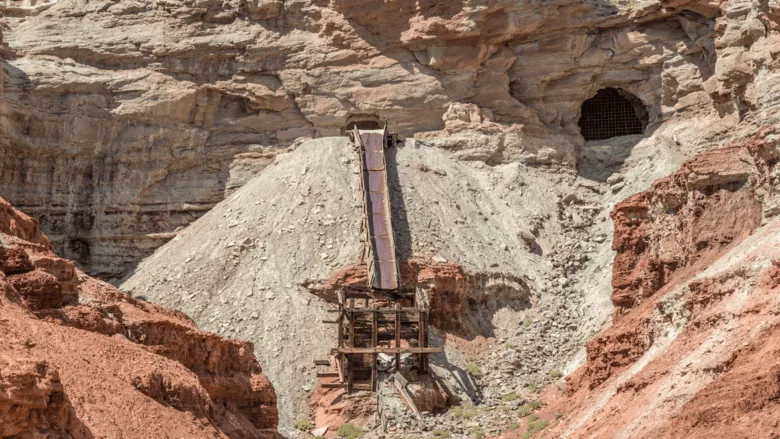Here's the First Project Cleared Under Expedited 14-Day Environmental Review
Interior Department Approves Uranium-Vanadium Mine in Utah

Image via Desert Solitaire from Getty Images
The Department of the Interior has approved the Velvet-Wood uranium and vanadium mine in San Juan County, Utah—making it the first mining project to pass under a newly fast-tracked 14-day environmental review process, launched in response to the national energy emergency declared by President Trump.
While the move is being hailed by the administration and industry leaders as a milestone for U.S. mineral independence, it’s also drawing sharp criticism from environmental groups, tribal representatives, and some policy experts who worry that speed is coming at the expense of thorough review and long-term ecological safeguards.
“This approval marks a turning point in how we secure America's mineral future,” said Interior Secretary Doug Burgum. “We’re reducing dependence on foreign adversaries and ensuring our military, medical, and energy sectors have the resources they need.”
The Velvet-Wood project, led by Anfield Energy, involves reopening a previously shuttered uranium mine and expanding operations underground. It’s expected to create local jobs and support infrastructure development. But opponents argue that the accelerated review bypassed meaningful environmental assessments and failed to consider long-term impacts on groundwater, public health, and nearby Indigenous lands.
“There’s a reason environmental reviews usually take time,” said Nancy Blackwell, policy director at the Western Public Lands Alliance. “Rushing through this process under the banner of ‘national security’ opens the door to costly mistakes and overlooked harms—especially when uranium, with its toxic legacy, is involved.”
Critics also question the need for domestic uranium and vanadium production at this scale, pointing to the global oversupply of uranium and the long lead time required to bring nuclear facilities online. They argue that the real driver behind the project may be political symbolism rather than genuine energy urgency.
Meanwhile, the Grand Canyon Trust and other advocacy organizations have called for a halt to mining near culturally and ecologically sensitive areas, citing concerns about contamination from past uranium operations still affecting Native communities.
Despite the pushback, Anfield Energy also plans to reopen the Shootaring Canyon uranium mill, one of only three licensed facilities of its kind in the U.S., to process ore into uranium concentrate. The company maintains that its operations will be safe, efficient, and environmentally responsible.
The Bureau of Land Management, which oversees resource extraction on public lands, insists the project meets all current standards. Still, the precedent set by the rapid approval has sparked debate over the future of environmental oversight and the balance between domestic resource development and conservation.
Looking for a reprint of this article?
From high-res PDFs to custom plaques, order your copy today!




